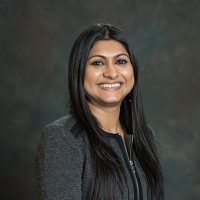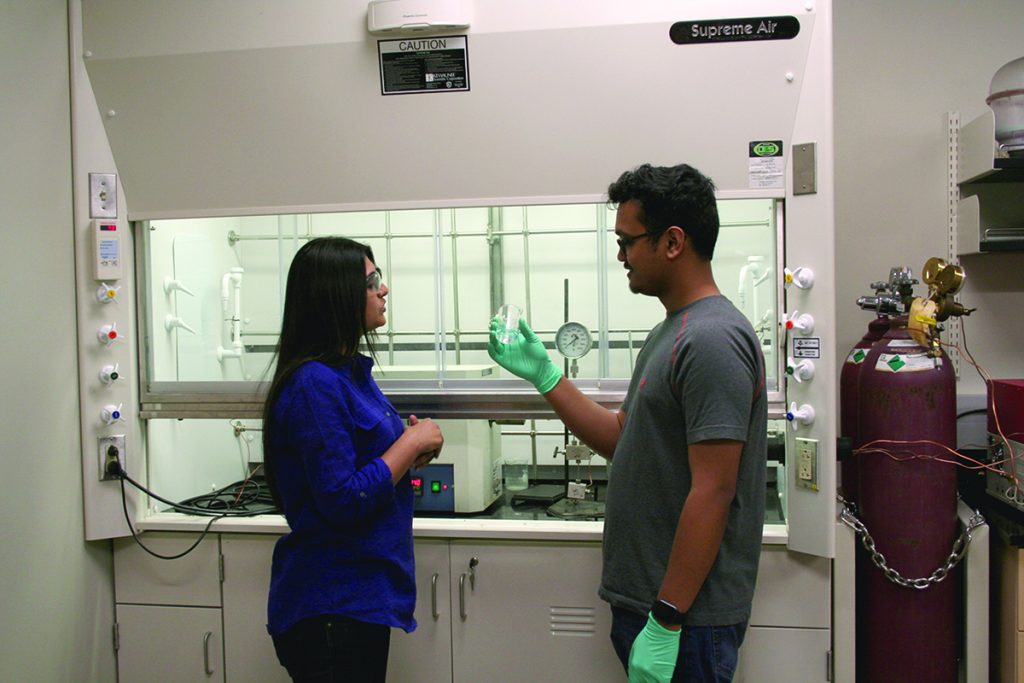Hema Ramsurn, ’13 chemical engineering
University of Tulsa
Assistant professor, chemical engineering
From Mauritius to Auburn . . . My home is Mauritius, an 800-square-mile African island located in the Indian Ocean. I went to the only university there at that time to complete my bachelor’s in chemical and environmental engineering. I worked for one year, after graduation, and decided to move to London to complete my master’s degree at Brunel University. I have always wanted to go out and discover the world and earning my master’s abroad was one way to fulfill this goal. When I returned to Mauritius, times were tough. Being on an underdeveloped island, job opportunities are very limited, especially for science and engineering. The island is very tourist focused and hence there is no “hardcore” engineering industry. I just grabbed any job I could find, from working in a science museum to being on the administrative staff to the vice-chancellor, before finally landing a job as a lecturer at the University of Mauritius. I was teaching chemical engineering courses to undergraduates, but I wanted to do something more. Unfortunately, research in engineering is limited in Mauritius. However, in my second year as a lecturer, a mechanical engineering professor from Auburn University, Subhash Sinha, came to the University of Mauritius as a Fulbright scholar. We started talking and he put me into contact with Bruce Tatarchuk and Mario Eden from the Department of Chemical Engineering. After discussing my goals and options with them, I ended up applying for my Ph.D. at Auburn. I read about the research conducted in the department and was very excited to see the range of projects they had, including biofuels, biomedical, nanomaterials, catalysis, reaction engineering, thermodynamics and optimization research. I have to add that both my parents and my husband encouraged me to pursue my dream of getting a doctoral degree.
 Being a professor . . . Working at a university is so refreshing and every day there is something new going on. It is very dynamic. The idea of directing your own research and exploring your own ideas is very attractive for a researcher like me. Being in academia allows me the freedom to test my ideas and hypothesis. Working at a university makes it easy to approach and interact with experts in other areas, because they could be working along the corridor from you. This enables cross-disciplinary thinking and original ideas to arise in a natural environment. Teaching and sharing ideas with young people also gives me the satisfaction that I am shaping the engineers of the future, a big responsibility which I take very seriously. I love interacting with young engineers-to-be — they keep me on my toes. The enthusiastic and intelligent young people I encounter daily ask probing questions that shed new light on current issues and sometimes make me view things with a different perspective.
Being a professor . . . Working at a university is so refreshing and every day there is something new going on. It is very dynamic. The idea of directing your own research and exploring your own ideas is very attractive for a researcher like me. Being in academia allows me the freedom to test my ideas and hypothesis. Working at a university makes it easy to approach and interact with experts in other areas, because they could be working along the corridor from you. This enables cross-disciplinary thinking and original ideas to arise in a natural environment. Teaching and sharing ideas with young people also gives me the satisfaction that I am shaping the engineers of the future, a big responsibility which I take very seriously. I love interacting with young engineers-to-be — they keep me on my toes. The enthusiastic and intelligent young people I encounter daily ask probing questions that shed new light on current issues and sometimes make me view things with a different perspective.
Teaching at Tulsa . . . The University of Tulsa is a small private university and it operates as an extended family. When I visited TU for my interview, I felt welcomed and I knew I could fit into their working culture. The faculty and students whom I met were very friendly and seemed interested in my research. Presently, I am teaching thermodynamics and fluid mechanics and will be co-teaching health and safety in the fall. I am also mentoring three doctoral students, one master’s student and two undergraduates for research. I am also the American Institute of Chemical Engineering student chapter advisor. I also serve on panels and review proposals and journal articles, so overall I have a full plate. But the interaction with the students and other experts is my favorite part of being a professor because you get to meet some very interesting people and collaborate with some brilliant people. I think the process of proposal writing is probably the most daunting part of this job, especially for a young faculty member like myself.
Auburn prepared me for my future . . . Apart from the rigorous graduate courses I took at Auburn, I also served as a teaching assistant. It made me realize how much I enjoyed the interactions with the students. Also, my advisor, Ram Gupta, sent me to national conferences to present our research findings, which we published in peer-reviewed journals. I also had the responsibility of research projects apart from my doctoral work, and this made me more versatile and led me to acquire a greater level of knowledge and skills on other engineering and scientific topics. Dr. Gupta also allowed me the opportunity to write research proposals, mentor undergraduate students in the lab and train visiting scholars from places such as Turkey and Colombia on hydrothermal processes.
Lessons learned . . . When I moved to Auburn, my husband stayed back in Mauritius since he could not work in the U.S., and I decided to take my 4-year-old son with me. This not only meant I had to manage my time wisely for my studies, but I also had to be mom and dad to my son. I learned to manage my time efficiently, enough to finish my Ph.D. in four years. I now apply the same rigorous time management skills in my professional life.
Advice for the future . . . I always tell my undergraduate students that they need to complete an internship in their chosen industry during the summer and then follow that with research in a lab. This is the best way to know your inclination. You have to do what you love and have the passion for or it is not worth it. If you persevere, do not get discouraged easily and enjoy solving open-ended problems, then research is for you. At the end of the day, you have to enjoy what you do, otherwise you will be miserable.
